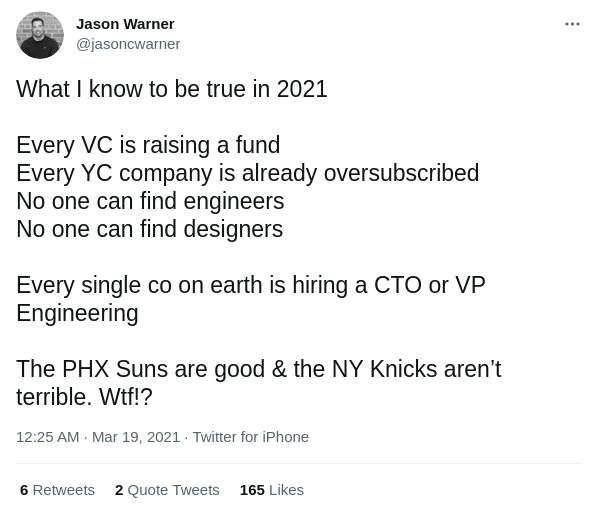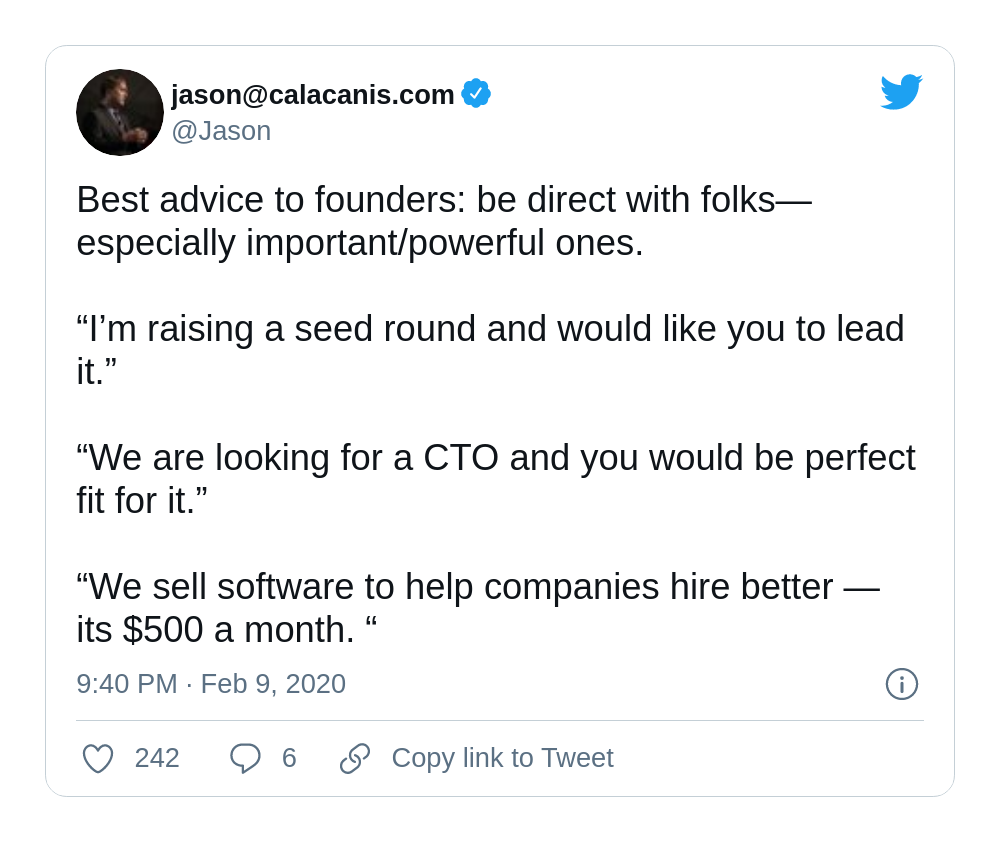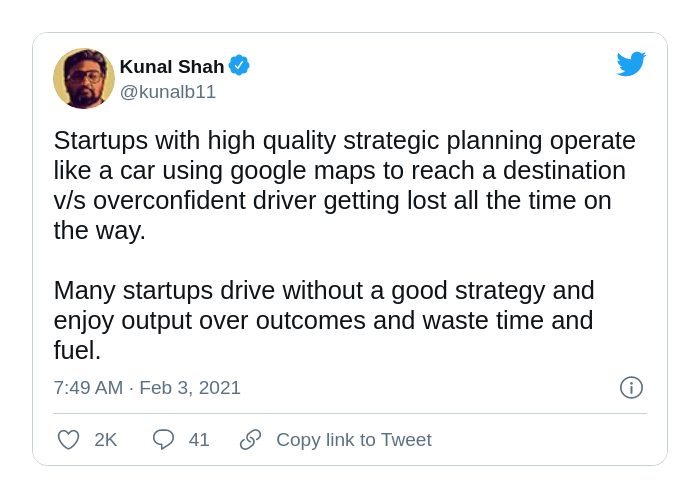How to Hire a CTO for Your Startup
Table of Contents
This article is part of the series called Founders Guide which I’m writing currently to help early-stage founders tackle the problems they face during the first year of the startup.
So you're at the start of your journey, founded a company, and the future looks stressful, but you're excited to tackle all the problems. You've wasted enough time setting up all of the accounting and legal stuff- it's time to build that dream product and the team that will grow it.

Introduction
If you lack the technical expertise, you need someone by your side who has it. Otherwise, you're probably going to end up with a half-finished product by your deadline. It sucks, but it's true - there needs to be proper leadership involved on the technical side of things while you focus on the product's vision.
A Chief Technology Officer, or CTO for short, is your counterpart carrying on his shoulder the responsibility for the entire technical landscape of the project - the team, the stack, the making-sure-it-works burden. You can blame him when something is not working correctly or if the project is already two months late.
In the early stages of a startup, the CTO needs to do practically everything. I can't tell you how many different things I had to do to make sure the business moves forward and survives. Here's a small list:
- Dealing with a limited budget - there's a finite amount of money you have for that scalable AWS setup.
- Looking for those Rockstar hires - it's interview after interview, looking for that perfect one.
- Setting up processes that don't suck - writing a lot of documentation, to not forget when we need to do it a second time.
- Talking with clients, so they trust me that I know what I'm doing.
- Doing DevOps - Linux stuff goes brr brrr.
- Spending Friday evening to find out why the printer doesn't work.
- And writing those first lines of code, of course. When you're small - everyone needs to write code.
As a rule of thumb - it's doubtful that you will be able to hire for all of the positions immediately - that means the CTO will need to be filling in the gaps with their skills and time regularly.

The Alternatives
You can solve the lack of a technical leader in two ways:
- Delegate everything related to the product to an external company, i.e., a development agency: the easiest option, but at the same time, it's the most expensive.
- Get yourself an in-house specialist - either on salary or as a shareholder. An in-house person is the best long-term solution that will help you grow your company - always good to have someone with whom you can share the load.
Going with the Agency
PROS
- Time-to-market is faster. An agency can get your product out the door in a matter of months. Your job is to approve what they send you on time.
- You can lower your costs by giving them shares. Some agencies can build your product at cost - in return for a percentage of future profits. But it all depends on how good your product is.
- Agency usually has the in-house expertise to build something that you want. Ideas are rarely unique, and even if they are, they share similar components.
- You can rely on them to deliver the product on time.
CONS
- They're expensive. I would go with an agency model only when you have already promised your investors to deliver the product at X date. Better safe than sorry.
- People working on your project can change. There's no feeling of "ownership" of the product. It's something nice to have when the people that build the project are there from day one and grow with the company.
- It will require a bit of time to switch to in-house development once you start with an agency. Hiring yourself, a CTO will probably make it easier to get the control back.
Going with CTO as a Service
CTO as a service is one approach that is gaining popularity in 2021 - a technical person acts as a supervisor/advisor, makes sure you hire the right people, assists in setting up processes, etc. This can also be called a technical advisor.
PROS
- Cheap compared to other alternatives. On-demand - there's usually no long-term commitment, and the person assists you 2-4 hours per week. I would probably use this for the initial kick-off. To make sure you find the right CTO and setup proper processes.
- Most likely this person is a veteran CTO - has experience getting products off the grounds already. Getting such a person on board full-time will be quite hard, so part-time is also not bad.
CONS
- Again there's no "ownership." The technical advisor comes and goes and is not part of the team, mostly oversees the birth of the company rather being really part of it.
- This is not a long-term solution. You cannot manage your development with 2-4 hours per week. It's nice to keep the person as an advisor to assist you with decisions, but you should focus on in-house experts on a long-term basiы - a good advisor will tell you that straight away.
Getting yourself a CTO / CO-founder
This is the path most startups usually follow. As a startup, you must understand that the opportunity cost for a senior-level expert to join you is enormous. They would be choosing uncertainty, chaos, long hours, non-existing work-life balance for a few years - and a 70% pay cut on top of that. That's an excellent deal, wouldn't you say.
PROS
- Having a person beside you who is sharing the responsibilities, in the long run, is massive. You cannot imagine how much easier it is to have someone in the same boat as you.
- In-house knowledge. Everything that you build - stays inside the company. The knowledge, processes, and mistakes that you make will be the stones you build your foundation.
- Having smart people in-house makes it easier to hire other intelligent people.
CONS
- It's a very slow process. There are hundreds of things to look for, one of them is "your gut feeling."
- Hiring one full-time is expensive.
- Hiring the wrong one can be very expensive.
Now that we've taken a look at all the alternatives - we're going to focus only on the third part - finding yourself a proper partner-in-crime who will build you a product.

The hiring
Get yourself a technical advisor if you don't have any expertise—someone you can trust and who has enough experience to help you find the right person. An advisor can be helpful in many ways - interview people, mentor you on what to look for, be a sparring partner for your ideas. Until you have a good team set up - they will be your go-to person about everything.
If you don't have an advisor or can't find one - I would suggest contracting an HR company who can help you find the proper candidate - usually, they also do technical interviews and can vouch for the persons' skills.
Finding talent is not that hard; it's making them come to work for you, which is the hardest part. I bet if you take a look at your LinkedIn profile, you'll find some excellent candidates that fit your profile. But when you're hiring for a startup - you're already at a disadvantage and need to make people understand why your 1-man show is the place they need to be at.
Why should they join you?
So we're looking for someone senior with enough experience to help you build the product from A to Z and lead the team in the future.
We can either:
a) get someone young on board for growth or
b) get someone veteran for stability.
If you go with someone young - it's easier to convince them to join you, they're open to risk, and in return, they will work their ass off and share the excitement. They might make mistakes, might not get it right the first time, but if you give them time to grow - they might end up a Rockstar.
If you go with someone more veteran, they have more to lose by joining you and want a larger piece of the pie. In return, you get experience from the get-go, and your probability of building a working product by the deadline is higher than with a more junior person.
But don't get fooled by a candidate who only has ever worked for big companies or was in a manager position for the last ten years. First of all, moving from a senior management position to hands-on tasks execution position is a bad idea. Startup means chaos, and executives from big companies rarely deal with the kind of chaos that the startup scene has to offer - there's just so much uncertainty which leads to frustration and stress.
Second of all, if you see a candidate who only has Big Corp experience, i.e., FAANG - they probably have learned to build small parts of software for scale. Imagine if your CTO starts making a simple blog in an overengineered way with all the fancy new tech. A startup needs technology choices that do not scale, highly agile processes, and skills to deal with ever-changing requirements.
The person you're looking for is someone who can build you an imperfect app for thousands of users instead of someone who can create you a perfect app that can handle a billion users—balancing between perfection and future technical debt.

The qualities to look for
Here's a highly opinionated list of qualities that I think are important in a person who can help you scale your startup.
Hands-on mentality.
It would be best if you have someone who can build you a v1. As soon as you get your CTO, she needs to start coding. While she's coding, she will also begin assembling a team. Having some part of the v1 already finished will make it easier to hire more people. Imagine telling your investors that you hired a few C-Level execs, and now you need just a few coders to build the product. That would be funny, right?
Leadership
We talked about hands-on experience, but what is more important in the long run are the soft skills - leadership qualities, communication skills. In the long run, the person will need to inspire others and empower them. So be careful when hiring - stay away from "lone coders" who might seem reasonable at first by being able to build the v1.
Experience / Advanced skillset
Having at least a few closed projects under their belt is a must. Why would you take anyone on board who has never released a product into the world? It would be great if you had someone with T-shaped skills - someone who's an expert in some field and can also apply his knowledge in other areas.
Commitment
You need a person who will be the driving force for your development 24/7. Imagine telling a random person that you're going to be spending at least 8 hours per day working together in the next five to ten years. It sounds like a crazy invitation, but this is what you're offering them - the person that you're looking for is ready to make such a commitment.
Get shit done mentality.
One of the qualities that you'll be looking for is an attitude to solve problems proactively. This means proactively taking over some of your tasks to make sure you ace that investor pitch or making sure the service is working correctly on the weekends when you're doing a ProductHunt debut. Find a person who will be as invested in success as you are.

Getting them on board
As discussed previously, we don't have the luxury to offer the person the same pay and security as his current job. That means to get someone on board - you need to explain to them why you can't pay them six figures, what your budget looks like, what your salary is like. Keep it transparent, discuss equity, discuss the timeline when you think you can get to market rates. You're looking for a person who will take that risk for the high reward in the future.
One more thing you can offer them is some fancy title. In my personal opinion, titles are irrelevant until you have at least 20 employees. Still, it might be important for someone to call themselves co-founder, so you should be willing to grant that if necessary. Don't be stingy. If someone wants to have a Chief-Something title, and you think that person is senior enough - why not. (Even if the person is junior, she might be able to grow into that title eventually)
I remember joining a startup in 2012 - they were trying to solve shift planning problems for hospitality businesses. The founders had so much energy, so much drive. They feverishly talked about the challenges they were trying to solve - and I quickly got sucked into that mentality and was eager to start making their vision a reality. In other words - if you manage to spark that fire in them with your passion for the product - it might be easier to get them on board with you.
Making your expectations clear
Let's assume you found your candidate and managed to get him to join you in your endeavor. Now what? You should expect your CTO to do a few things day-to-day - and the earlier you communicate these expectations, the fewer tensions there will be in the future.
You don't need someone who won't be able to say NO to you. You need a partner who pragmatically approaches your vision, makes it possible and makes sure he can deliver it on time— a realistic approach to product development. Expect them to say NO, enable constructive discussions.
Delivering on time means building a great team that can tackle challenges and can go from v1 to v2. Your CTO does not need to be the most intelligent guy in the room. On the contrary, he needs to hire people more competent than he is.
These people should be empowered to improve things, to build solid processes. The more smart people the CTO hires, the less he will do himself and the more he can focus on the strategic development. In the end, CTO will worry about disaster mitigation, compliance with regulations, cybersecurity audits, automation.
One of the questions that will need solving after the v1 is done - is how we can enable the business to be more efficient? What can we integrate/automate? Building a product is one thing, but there's a whole ecosystem around your product that can be improved and significantly impact the company. Marketing automation + CRM + Notifications + Autofilling + another SaaS integration. There's huge potential there that will need to be solved by your CTO.
Last but not least - a CTO represents the company during conferences / technical meetups. If your client has some concerns regarding the technology - you pull down your CTO into the meeting and make sure he explains everything properly. During big meetings, the CTO is the authoritative voice that doesn't speak too much, but when he does, everyone should listen.

Planning ahead
As the product grows, so does the company with it. The ecosystem around it becomes more complex, which can be the source of some problems.
For one, the CTO might need to transition to a different role. Not everyone is suited to lead the exponential growth. Building v1 and setting the foundation is a different skill set than scaling the company to thousands of developers. You might need someone with more experience in strategy & delegating - or time to set up that VP level of managers.
You will lose bright employees. Not everyone will be happy at your company - if you can keep your turnaround at 10-15% per year, that's good. But people will fail your expectations, and you will fail theirs. The CTO must handle this correctly. Either the developer is bringing in value, or he's not. It's always easier to be indecisive. Unfortunately, no business ever got built on not making any decisions.
Make sure you have actionable insights - as the company grows, it's essential to measure the efficiency of the development. Are the sprints being finished on time, how many new bugs arise after deployment, how deployments go, and the average uptime. Your CTO should set up a reporting process that can quickly give you insights to make proper decisions.
In the end, you and your co-founder will need to deal with a lot of uncertainty while you build the product. There will be pivoting, unexpected downtime, failures, wrong features implemented - it's ok - it's part of the journey. Make sure you extract knowledge from these mistakes and grow together with your CTO. Do not play the blaming game "The service is down - it's your fault" - it's not helpful, accept the responsibility together and move forward.
Conclusion
TL;DR Find yourself a partner-in-crime who:
- Will have at least some tech knowledge to help you build a product.
- Is ready to take the risk and grow with the company.
- Who is willing to hire smart people and empower them.
- With whom you will be comfortable working 24/7.
- And important of all - trust your gut feeling.
Thanks for reading! Here are some things I think you might like:
-
Chetan
Finding a technical co-founder is indeed a tricky part of getting a startup off the ground. Your emphasis on the need for a technical leader who can not only understand but also execute the vision is spot on. One thing I’d suggest, which wasn’t covered in the article, is the importance of aligning on values and work ethic right from the get-go. Having been through the wringer a couple of times, I’ve learned that skillset alignment is crucial, but value alignment is what keeps the ship steady during storms. Also, leveraging your network for recommendations can sometimes unearth gems that a traditional hiring process might miss. Lastly, remember, it’s not just about finding someone who can code but finding someone who’s as invested in the vision of the company as you are. That mutual passion is what transforms a startup into a success story.
-
Vivek
I jumped into a startup overestimating my abilities to put multiple hats at once. Initially we outsourced the development to some development agency in India, thinking I was being efficient with the money, only to watch deadlines whoosh and costs soared. Didn’t know anything about who to hire and how. Then I tried the CTO-as-a-service gig, which gave us a bit of clarity and structure at the start. We then found someone local who took over as CTO, but boy, did I underestimate the grind and the gut punch of going it alone tech-wise.
-
Girish
Starting my own tech startup, I was all in for hunting down a CTO with a great coding skillset. Midway through, it dawned on me how important it was that we actually ‘got’ each other beyond the code. We hit a rough patch not because of technical debt or scaling issues, but because our communication was off and our vision for the company culture didn’t align.
